
cosdata
Cosdata: A cutting-edge AI data platform for next-gen search pipelines. Features semantic search, knowledge graphs, hybrid capabilities, real-time scalability, and ML integration. Designed for immutability and version control to enhance AI projects.
Stars: 110
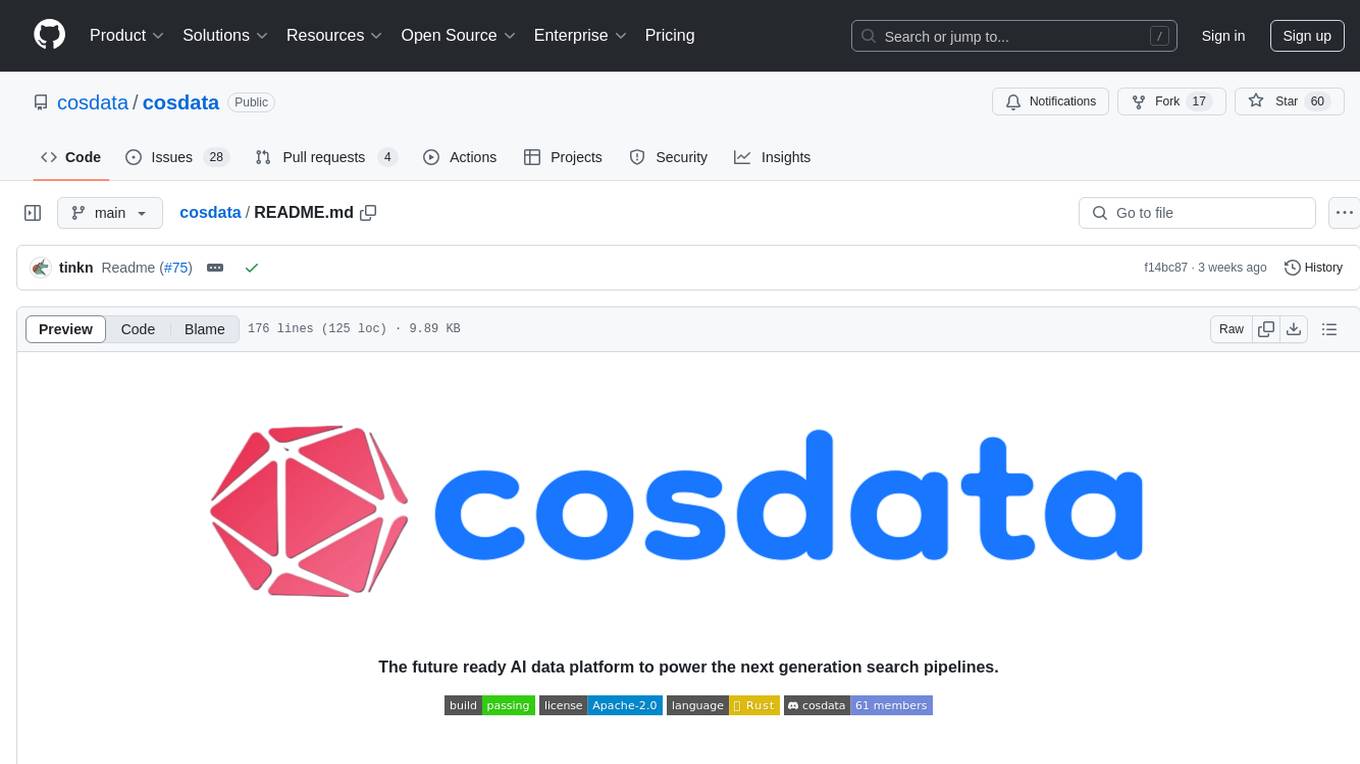
Cosdata is a cutting-edge AI data platform designed to power the next generation search pipelines. It features immutability, version control, and excels in semantic search, structured knowledge graphs, hybrid search capabilities, real-time search at scale, and ML pipeline integration. The platform is customizable, scalable, efficient, enterprise-grade, easy to use, and can manage multi-modal data. It offers high performance, indexing, low latency, and high requests per second. Cosdata is designed to meet the demands of modern search applications, empowering businesses to harness the full potential of their data.
README:
Next-gen vector database delivering lightning-fast performance at billion-vector scale.
Cosdata is cutting-edge AI data platform engineered for exceptional performance. Featuring immutability and version control, it's designed to elevate a wide range of AI and machine learning projects.
Cosdata is at the forefront of advancing search technology, excelling in critical areas that will define the next generation of search pipelines:
- Semantic Search: Leverage embedding-based hybrid search, seamlessly managing both dense and sparse vectors to deliver deep semantic analysis.
- Structured Knowledge Graphs: Sophisticated context retrieval by leveraging structured knowledge graphs.
- Hybrid Search Capabilities: Combine explicit relationship queries with vector similarity search.
- Real-Time Search at Scale: Execute real-time vector search with unmatched scalability, ensuring that your search pipeline performs flawlessly under any load.
- ML Pipeline Integration: Enjoy seamless integration with your existing machine learning pipeline, enhancing your search capabilities without disrupting your workflow.
Cosdata is designed to meet the demands of modern search applications, empowering businesses to harness the full potential of their data.
For a simple one-step installation on Linux, run:
curl -sL https://cosdata.io/install.sh | bashThis script will handle all dependencies and set up Cosdata automatically.
For Mac & Windows, use our Docker-based installation:
- Ensure Docker is installed and running
- Pull the latest image from Ducker Hub:
docker pull cosdatateam/cosdata:latest- Run the container
docker run -it \
--name cosdata-server \
-p 8443:8443 \
-p 50051:50051 \
cosdatateam/cosdata:latestThe server will be available at http://localhost:8443.
For developers looking to modify or contribute to Cosdata:
- Git
- Rust (version 1.81.0 or higher)
- Cargo (Rust's package manager)
- C++ compiler (GCC 4.8+ or Clang 3.4+)
# Clone the repository
git clone https://github.com/cosdata/cosdata.git
cd cosdata
# Build the project
cargo build --release
# Run Cosdata
./target/release/cosdata --admin-key your_admin_keyYou should see output similar to:
[2025-02-21T02:30:29Z INFO cosdata::web_server] starting HTTP server at http://127.0.0.1:8443
[2025-02-21T02:30:29Z INFO actix_server::builder] starting 20 workers
[2025-02-21T02:30:29Z INFO actix_server::server] Actix runtime found; starting in Actix runtime
[2025-02-21T02:30:29Z INFO actix_server::server] starting service: "actix-web-service-127.0.0.1:8443"
[2025-02-21T02:30:29Z INFO cosdata::grpc::server] gRPC server listening on [::1]:50051
To quickly get started with Cosdata, you can run the test.py file available in the top level directory. The test.py script -
- Creates a test collection and a Dense HNSW Index.
- In a transaction, submits batches of Random vectors to be stored on the server.
- Uses about 10% of the vectors from the above set as query vectors by adding small perturbations.
- Issues query to the server to perform the search against the query vectors and performs a brute force search locally using
cosinedistance. - Compares the results
In order to run the test.py file a few dependencies need to be added. The description here uses uv for downloading and setting up required dependencies. Perform following steps.
# Run uv sync to setup the Python virtual Env and download and install dependencies using `pyproject.toml` file.
uv sync
# Run the test.py file
uv run test.py
The script will then perform the steps described above and display the summary of execution
You can test Cosdata server using real world datasets. This is performed using test-dataset.py. (TODO: Add details for this).
It's recommended to run Cosdata server in HTTPS mode i.e. with TLS
support. However, during development it might be easier to get it
running without TLS. To do so, set server.mode=http in the
config.toml file.
Alternately, you may use self-signed certificates for testing the APIs. The paths to the certificate and private key files are configured in the config.toml file.
This sections mentions how you can generate and setup the certificates.
Run the following commands in sequence to get the private key and certificate
openssl req -newkey rsa:2048 -nodes -keyout private_key.pem -x509 -days 365 -out self_signed_certificate.crt
# Convert the private key to PKCS#8 format
openssl pkcs8 -topk8 -inform PEM -outform PEM -in private_key.pem -out private_key_pkcs8.pem -nocryptSet the SSL_CERT_DIR environment variable to the folder where you're gonna store the certificates:
export SSL_CERT_DIR="/etc/ssl"Move certificates to appropriate folders and set permissions:
# Create directories if don't exist
sudo mkdir -p $SSL_CERT_DIR/{certs,private}
# Move certificates
sudo mv self_signed_certificate.crt $SSL_CERT_DIR/certs/cosdata-ssl.crt
sudo mv private_key_pkcs8.pem $SSL_CERT_DIR/private/cosdata-ssl.key
# Create 'ssl-cert' group (if if doesn't exist already)
sudo groupadd ssl-cert
# Change private key file permissions
sudo chgrp ssl-cert $SSL_CERT_DIR/private/cosdata-ssl.key
sudo chmod 640 $SSL_CERT_DIR/private/cosdata-ssl.key
sudo usermod -aG ssl-cert $USER
# Change private key folder permissions
sudo chmod 750 $SSL_CERT_DIR/private
sudo chgrp ssl-cert $SSL_CERT_DIR/private
# Add yourself to ssl-cert group (you may need to re-login after this)
newgrp ssl-certCosdata provides official client SDKs for easy integration:
Install using pip:
pip install cosdata-clientExample usage:
from cosdata.client import Client
# Initialize the client
client = Client(
host="http://127.0.0.1:8443",
admin_key="your_admin_key"
)
# Create a collection
collection = client.create_collection(
name="my_collection",
dimension=768
)View Python SDK Documentation →
Install using npm:
npm install cosdata-sdkExample usage:
import { Client } from 'cosdata';
// Initialize the client
const client = new Client({
host: 'http://127.0.0.1:8443',
admin_key: 'your_admin_key'
});
// Create a collection
const collection = await client.createCollection({
name: 'my_collection',
dimension: 768
});View Node.js SDK Documentation →
- Hybrid Search: Enhance search precision with our vector database, leveraging the power of combined sparse and dense vector searches to deliver highly relevant, context-rich results for complex queries.
- Knowledge-Graph: Improve the relevance of your search results by seamlessly combining structured information from knowledge graphs with the nuanced semantics of vector embedding, enabling our vector database to deliver richer and more relevant insights.
- Indexing: Experience lightning-fast indexing with our vector database, optimized for handling high-dimensional data at scale. Our advanced indexing algorithms ensure that your sparse and dense vectors are always ready for instant querying, no matter how large or complex your dataset grows.
- Latency: Power your applications with lightning-fast search performance—our vector database is engineered to deliver exceptionally fast query responses.
- Requests per second: Achieve industry-leading concurrent requests per second (RPS) across different indices with an advanced architecture designed for optimal performance under heavy loads.
- Configurability: Gain precise control over your setup with manual configuration of all indexing and querying hyperparameters, enabling you to optimize performance, resource utilization and tailor results to your exact specifications.
- Dense Vector indexing: Achieve efficient and precise indexing with our vector database's optimized HNSW (Hierarchical Navigable Small World) algorithm, designed to enhance search performance and accuracy for large-scale data sets.
- Sparse vectors: Expertly designed to work seamlessly with SPLADE-generated sparse vectors, our solution offers superior performance compared to BM25 indices for more precise and meaningful insights.
- Unlock unbounded scalability with our vector database, engineered to grow alongside your data and query demands. Whether you're handling millions of records or scaling up to massive datasets, enjoy consistent, high-speed performance without compromise
- Achieve predictable and efficient query performance with our vector database, engineered for near-linear scalability that ensures fast results, even as your data expands.
- Resource utilization: Efficiency is at the core of our vector database, where ingenious provably efficient data structures and algorithms ensure outstanding performance while providing increasingly relevant search results.
- Scalar quantization: Configure finer quantization resolutions, including quarter-nary (2-bit) and octal (3-bit), for enhanced compression and improved recall trade-offs, giving you more control over data efficiency and performance.
- Product quantization: A pioneering product quantization approach to not only compress data more effectively but also enhance recall performance beyond what scalar quantization offers, optimizing both data efficiency and retrieval recall.
- Data isolation: Experience enterprise-grade privacy with our vector database, providing robust data isolation to ensure secure and consistent access.
- Data security: Achieve reliable data security with our vector database, designed with robust safeguards such as role-based-access-control to protect your information and maintain its integrity against unauthorized access and threats.
- Multiple deployment modes: Deploy our vector database in various environments—whether at the edge, in a private cloud, public cloud, or serverless setup—providing you with flexible, scalable solutions to meet your unique operational needs.
- Reliability: Cosdata delivers reliable performance and data integrity with fault-tolerance, backup, and recovery features, designed to meet enterprise demands and ensure uninterrupted operation.
- Versioning: Experience Git-like version control with our vector database, enabling you to compare search performance, use time travel to access past states, audit data, and effortlessly roll back when necessary.
- Auto-configuration of hyper-parameters: Achieve peak performance with our vector database, utilizing insights-driven auto-configuration of hyperparameters to automatically fine-tune your system for the best results, no manual adjustments needed.
- Intuitive API: Elegantly crafted HTTP Restful APIs featuring "Transactions as a resource". Manage all functions of our vector database effortlessly with intuitive HTTP RESTful APIs.
- Client SDKs in your favourite language: Access our vector database effortlessly with client SDKs available in multiple programming languages.
- Powerful and expressive cosQuery language: Leverage cosQuery, a powerful and expressive declarative query language, to seamlessly query data across vector embedding and knowledge graph, enabling deep and nuanced insights into your data.
- Supports real-time querying and dynamic index updates, ensuring that new multi-modal data (text, images, audio, etc.) is immediately searchable without downtime or delays.
- Want to learn more and/or contribute to the project? Join our Discord channel
- For business inquiries, please reach us at [email protected]
⭐️ If you find this project useful, please give it a star on GitHub! ⭐️
Your support helps us improve and continue developing. Thank you!
For Tasks:
Click tags to check more tools for each tasksFor Jobs:
Alternative AI tools for cosdata
Similar Open Source Tools

cosdata
Cosdata is a cutting-edge AI data platform designed to power the next generation search pipelines. It features immutability, version control, and excels in semantic search, structured knowledge graphs, hybrid search capabilities, real-time search at scale, and ML pipeline integration. The platform is customizable, scalable, efficient, enterprise-grade, easy to use, and can manage multi-modal data. It offers high performance, indexing, low latency, and high requests per second. Cosdata is designed to meet the demands of modern search applications, empowering businesses to harness the full potential of their data.

qdrant
Qdrant is a vector similarity search engine and vector database. It is written in Rust, which makes it fast and reliable even under high load. Qdrant can be used for a variety of applications, including: * Semantic search * Image search * Product recommendations * Chatbots * Anomaly detection Qdrant offers a variety of features, including: * Payload storage and filtering * Hybrid search with sparse vectors * Vector quantization and on-disk storage * Distributed deployment * Highlighted features such as query planning, payload indexes, SIMD hardware acceleration, async I/O, and write-ahead logging Qdrant is available as a fully managed cloud service or as an open-source software that can be deployed on-premises.
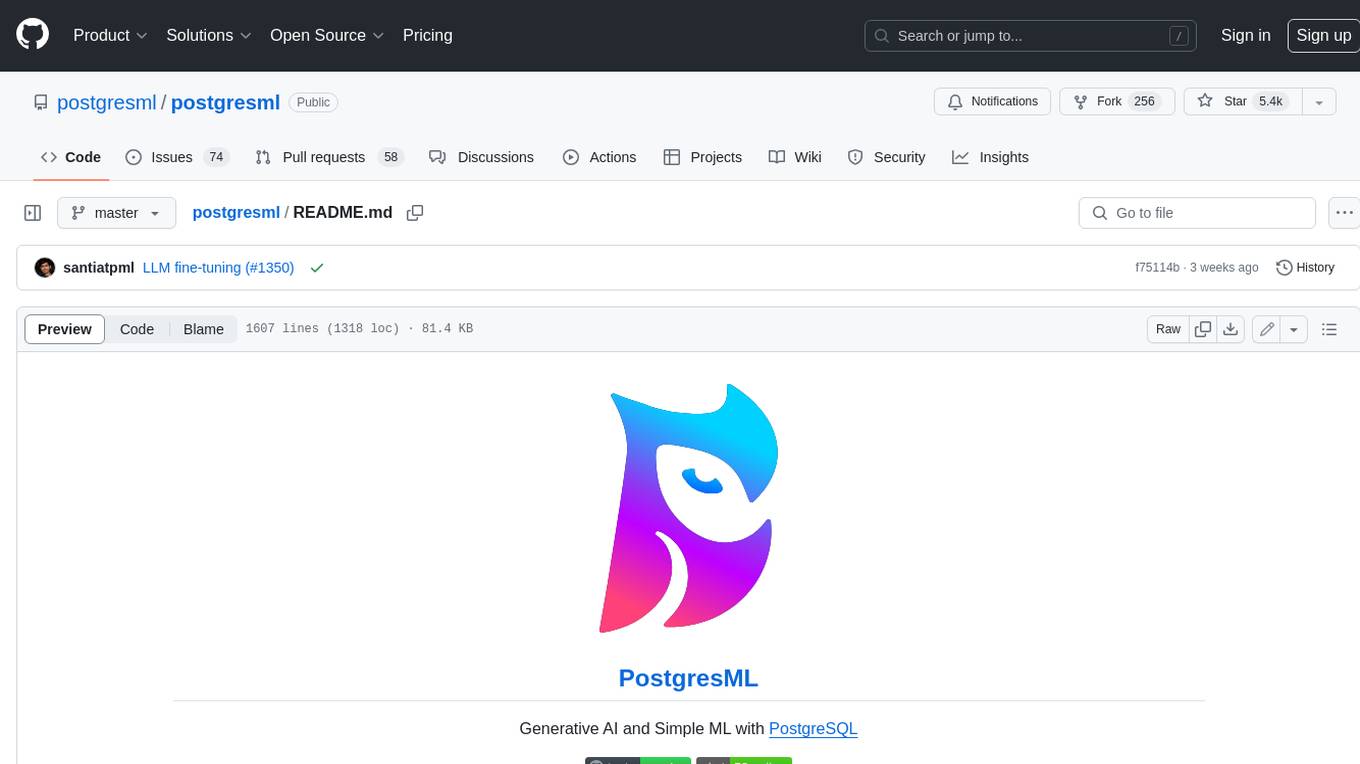
postgresml
PostgresML is a powerful Postgres extension that seamlessly combines data storage and machine learning inference within your database. It enables running machine learning and AI operations directly within PostgreSQL, leveraging GPU acceleration for faster computations, integrating state-of-the-art large language models, providing built-in functions for text processing, enabling efficient similarity search, offering diverse ML algorithms, ensuring high performance, scalability, and security, supporting a wide range of NLP tasks, and seamlessly integrating with existing PostgreSQL tools and client libraries.
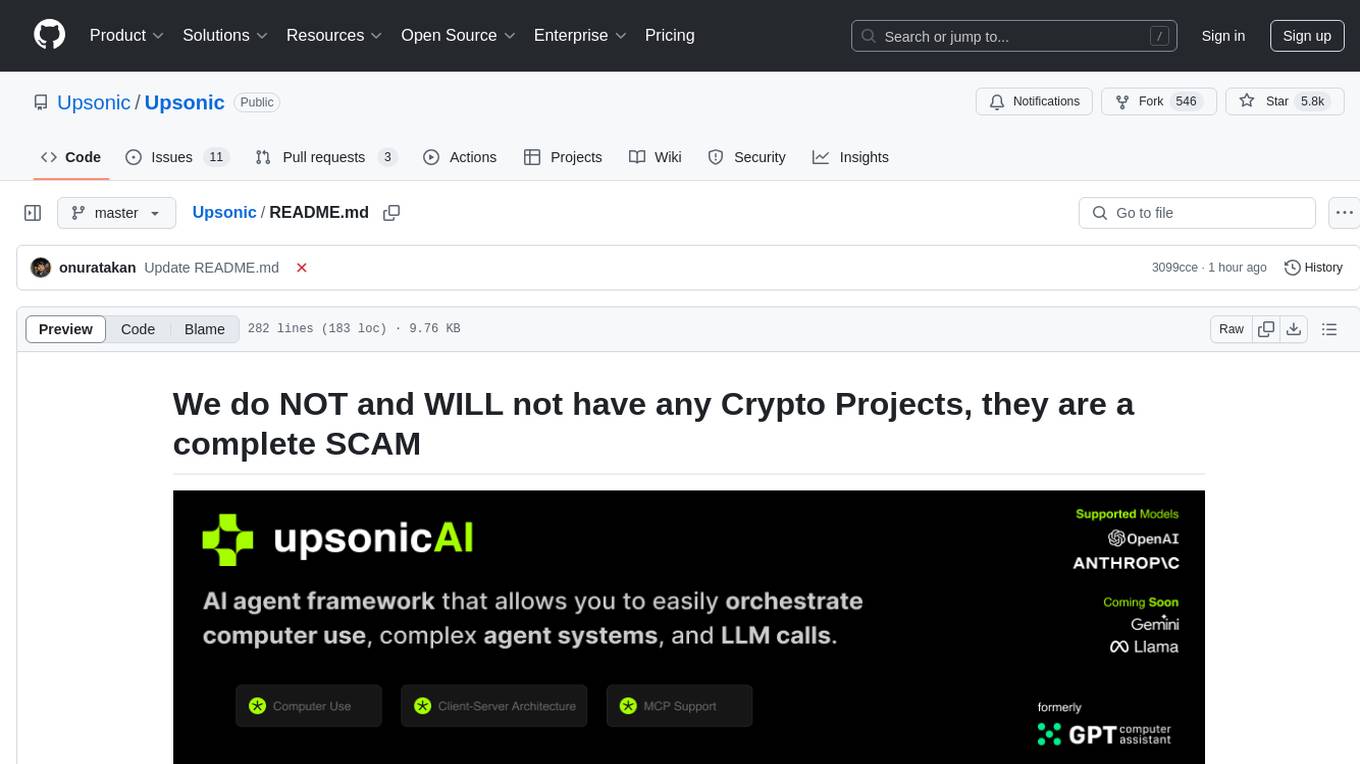
Upsonic
Upsonic offers a cutting-edge enterprise-ready framework for orchestrating LLM calls, agents, and computer use to complete tasks cost-effectively. It provides reliable systems, scalability, and a task-oriented structure for real-world cases. Key features include production-ready scalability, task-centric design, MCP server support, tool-calling server, computer use integration, and easy addition of custom tools. The framework supports client-server architecture and allows seamless deployment on AWS, GCP, or locally using Docker.
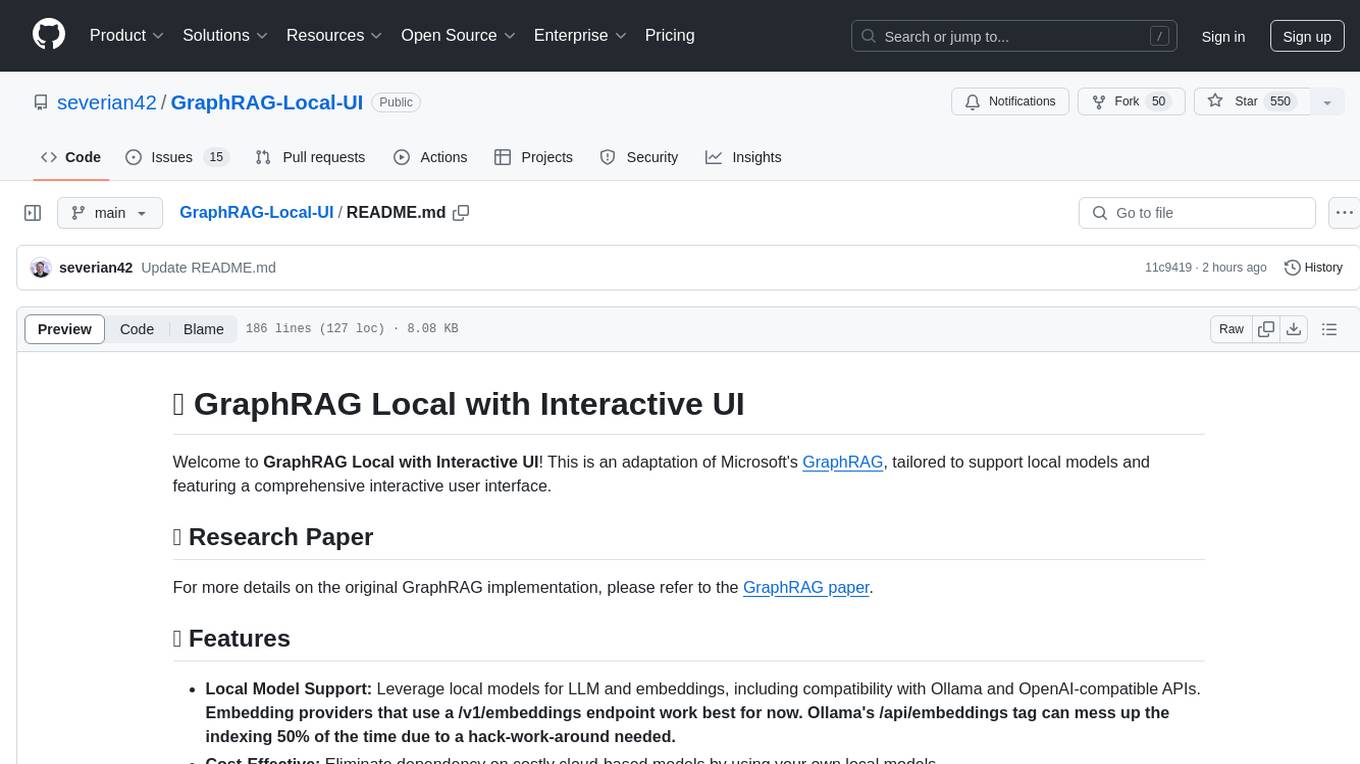
GraphRAG-Local-UI
GraphRAG Local with Interactive UI is an adaptation of Microsoft's GraphRAG, tailored to support local models and featuring a comprehensive interactive user interface. It allows users to leverage local models for LLM and embeddings, visualize knowledge graphs in 2D or 3D, manage files, settings, and queries, and explore indexing outputs. The tool aims to be cost-effective by eliminating dependency on costly cloud-based models and offers flexible querying options for global, local, and direct chat queries.
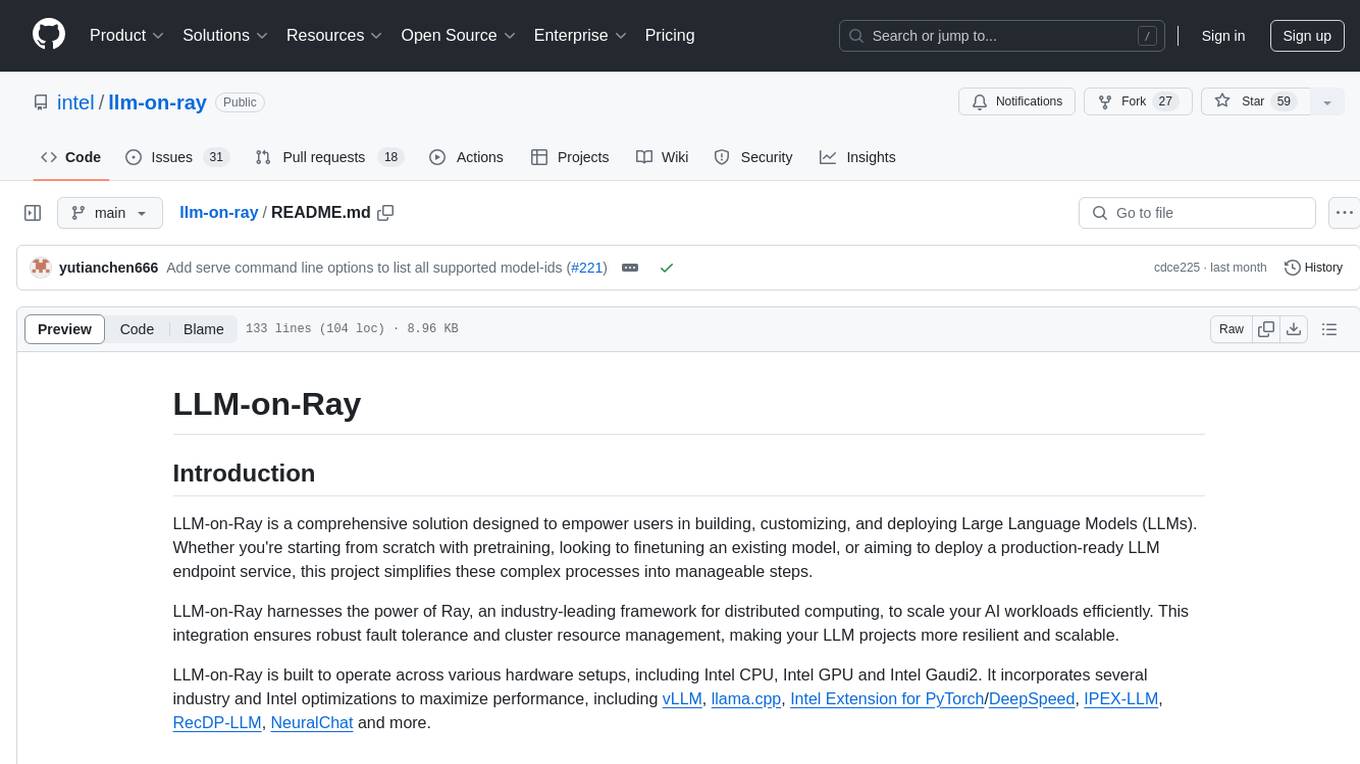
llm-on-ray
LLM-on-Ray is a comprehensive solution for building, customizing, and deploying Large Language Models (LLMs). It simplifies complex processes into manageable steps by leveraging the power of Ray for distributed computing. The tool supports pretraining, finetuning, and serving LLMs across various hardware setups, incorporating industry and Intel optimizations for performance. It offers modular workflows with intuitive configurations, robust fault tolerance, and scalability. Additionally, it provides an Interactive Web UI for enhanced usability, including a chatbot application for testing and refining models.

langmanus
LangManus is a community-driven AI automation framework that combines language models with specialized tools for tasks like web search, crawling, and Python code execution. It implements a hierarchical multi-agent system with agents like Coordinator, Planner, Supervisor, Researcher, Coder, Browser, and Reporter. The framework supports LLM integration, search and retrieval tools, Python integration, workflow management, and visualization. LangManus aims to give back to the open-source community and welcomes contributions in various forms.
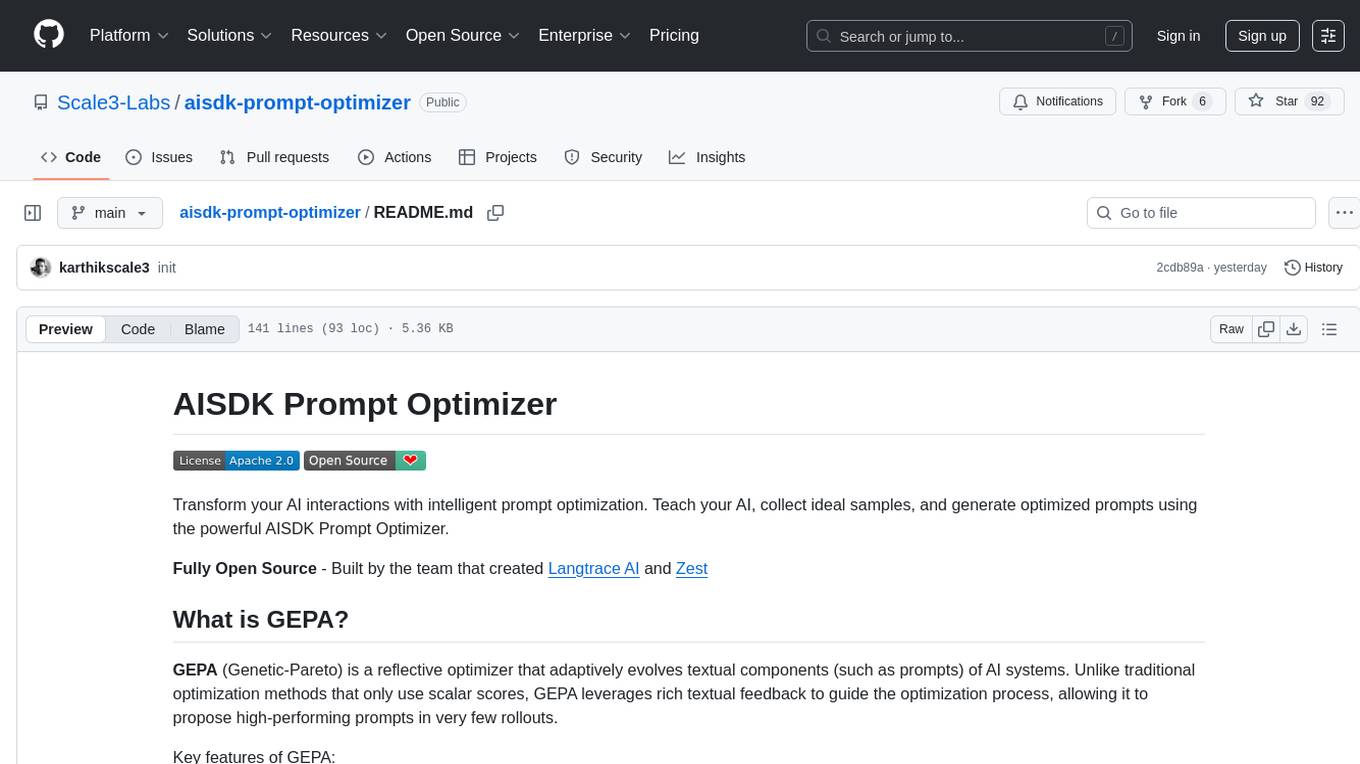
aisdk-prompt-optimizer
AISDK Prompt Optimizer is an open-source tool designed to transform AI interactions by optimizing prompts. It utilizes the GEPA reflective optimizer to evolve textual components of AI systems, providing features such as reflective prompt mutation, rich textual feedback, and Pareto-based selection. Users can teach their AI desired behaviors, collect ideal samples, run optimization to generate optimized prompts, and deploy the results in their applications. The tool leverages advanced optimization algorithms to guide AI through interactive conversations and refine prompt candidates for improved performance.

graphiti
Graphiti is a framework for building and querying temporally-aware knowledge graphs, tailored for AI agents in dynamic environments. It continuously integrates user interactions, structured and unstructured data, and external information into a coherent, queryable graph. The framework supports incremental data updates, efficient retrieval, and precise historical queries without complete graph recomputation, making it suitable for developing interactive, context-aware AI applications.

DevDocs
DevDocs is a platform designed to simplify the process of digesting technical documentation for software engineers and developers. It automates the extraction and conversion of web content into markdown format, making it easier for users to access and understand the information. By crawling through child pages of a given URL, DevDocs provides a streamlined approach to gathering relevant data and integrating it into various tools for software development. The tool aims to save time and effort by eliminating the need for manual research and content extraction, ultimately enhancing productivity and efficiency in the development process.

BentoML
BentoML is an open-source model serving library for building performant and scalable AI applications with Python. It comes with everything you need for serving optimization, model packaging, and production deployment.
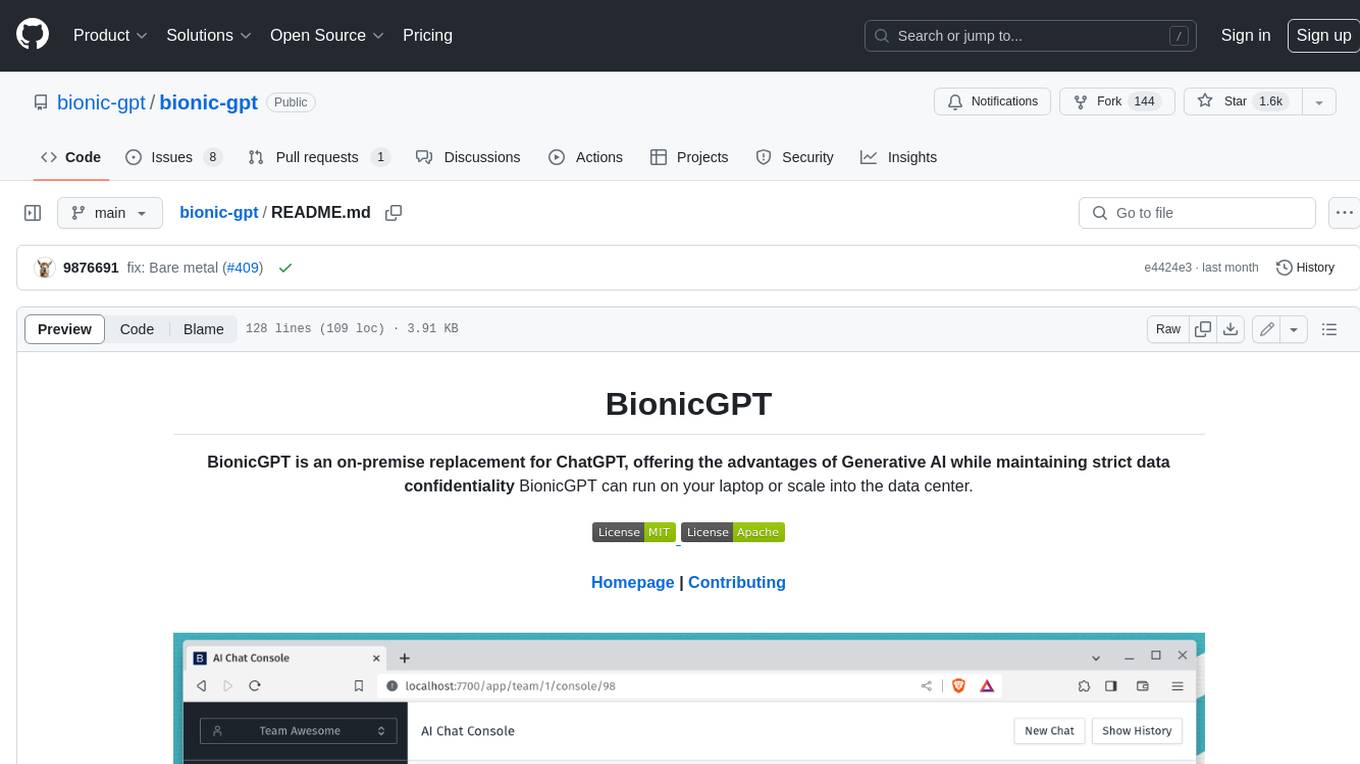
bionic-gpt
BionicGPT is an on-premise replacement for ChatGPT, offering the advantages of Generative AI while maintaining strict data confidentiality. BionicGPT can run on your laptop or scale into the data center.
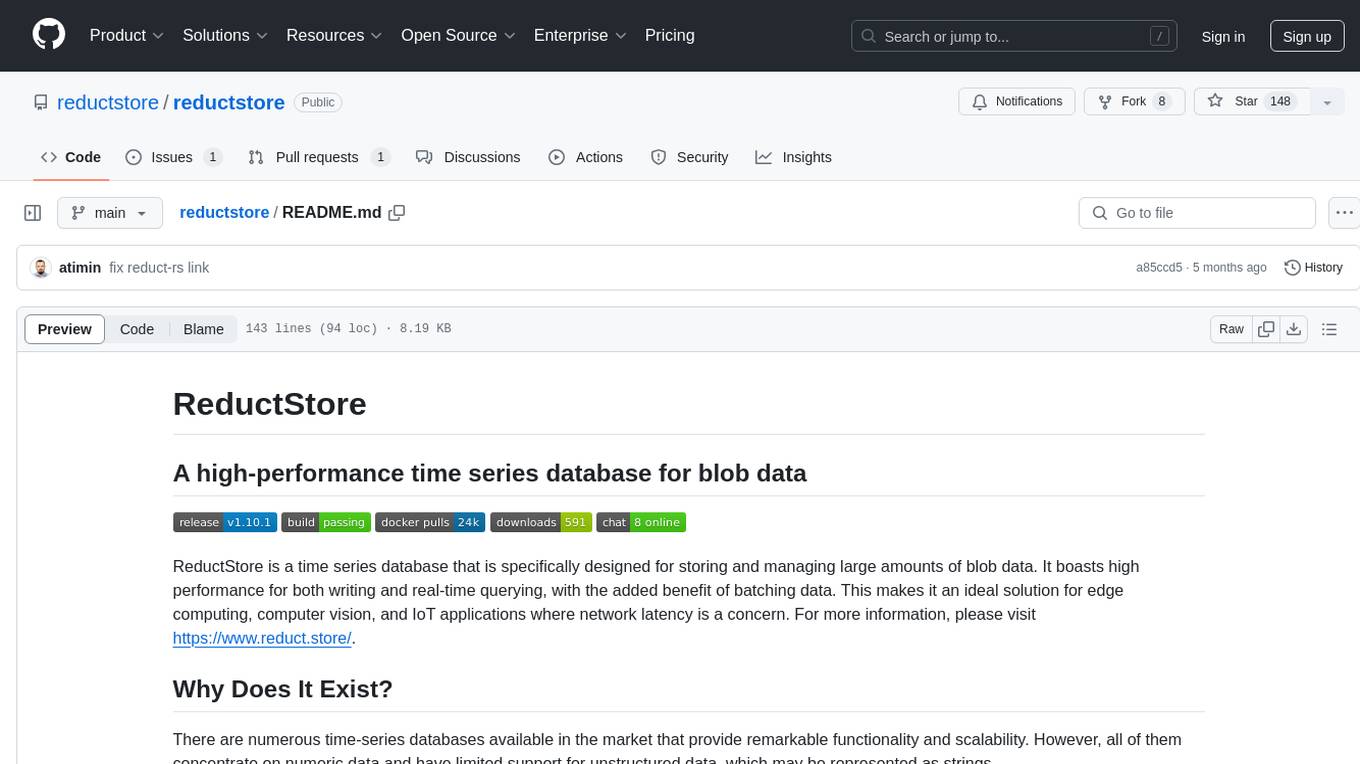
reductstore
ReductStore is a high-performance time series database designed for storing and managing large amounts of unstructured blob data. It offers features such as real-time querying, batching data, and HTTP(S) API for edge computing, computer vision, and IoT applications. The database ensures data integrity, implements retention policies, and provides efficient data access, making it a cost-effective solution for applications requiring unstructured data storage and access at specific time intervals.
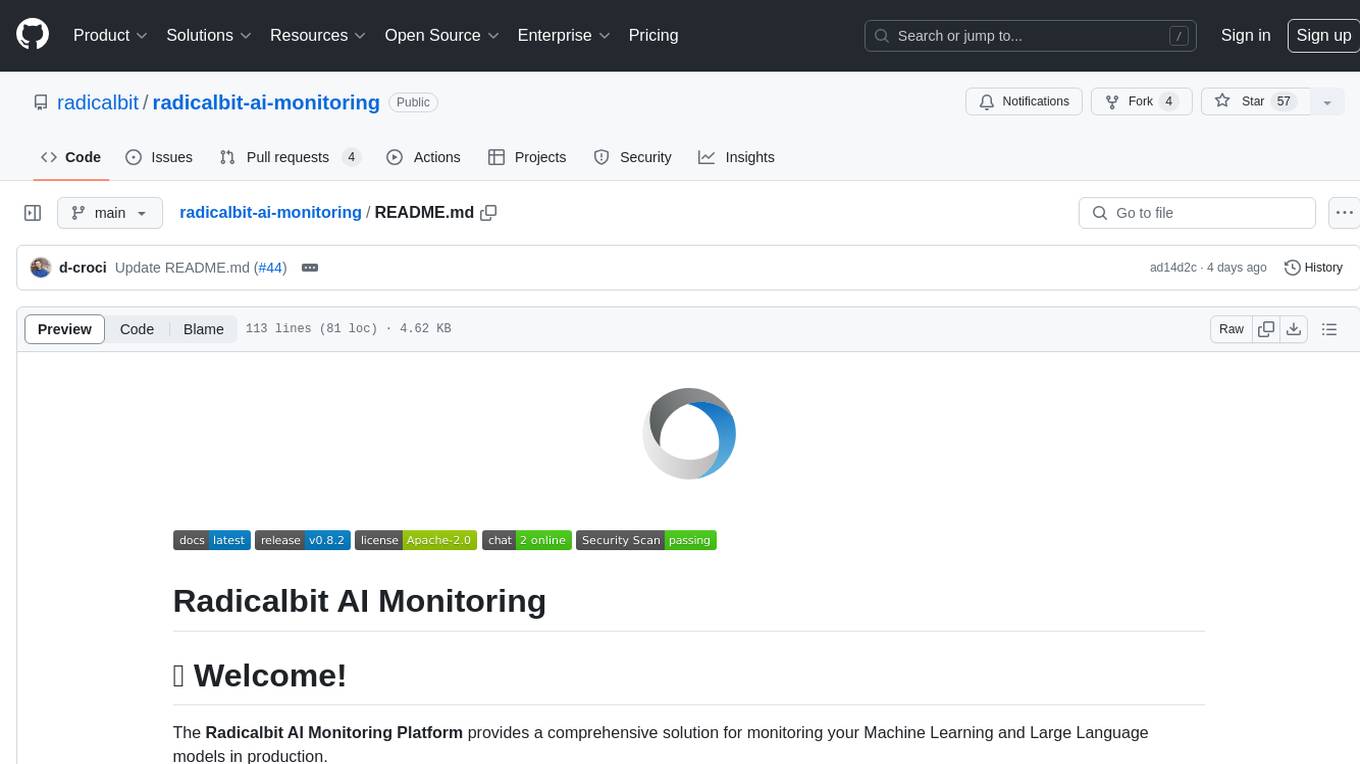
radicalbit-ai-monitoring
The Radicalbit AI Monitoring Platform provides a comprehensive solution for monitoring Machine Learning and Large Language models in production. It helps proactively identify and address potential performance issues by analyzing data quality, model quality, and model drift. The repository contains files and projects for running the platform, including UI, API, SDK, and Spark components. Installation using Docker compose is provided, allowing deployment with a K3s cluster and interaction with a k9s container. The platform documentation includes a step-by-step guide for installation and creating dashboards. Community engagement is encouraged through a Discord server. The roadmap includes adding functionalities for batch and real-time workloads, covering various model types and tasks.
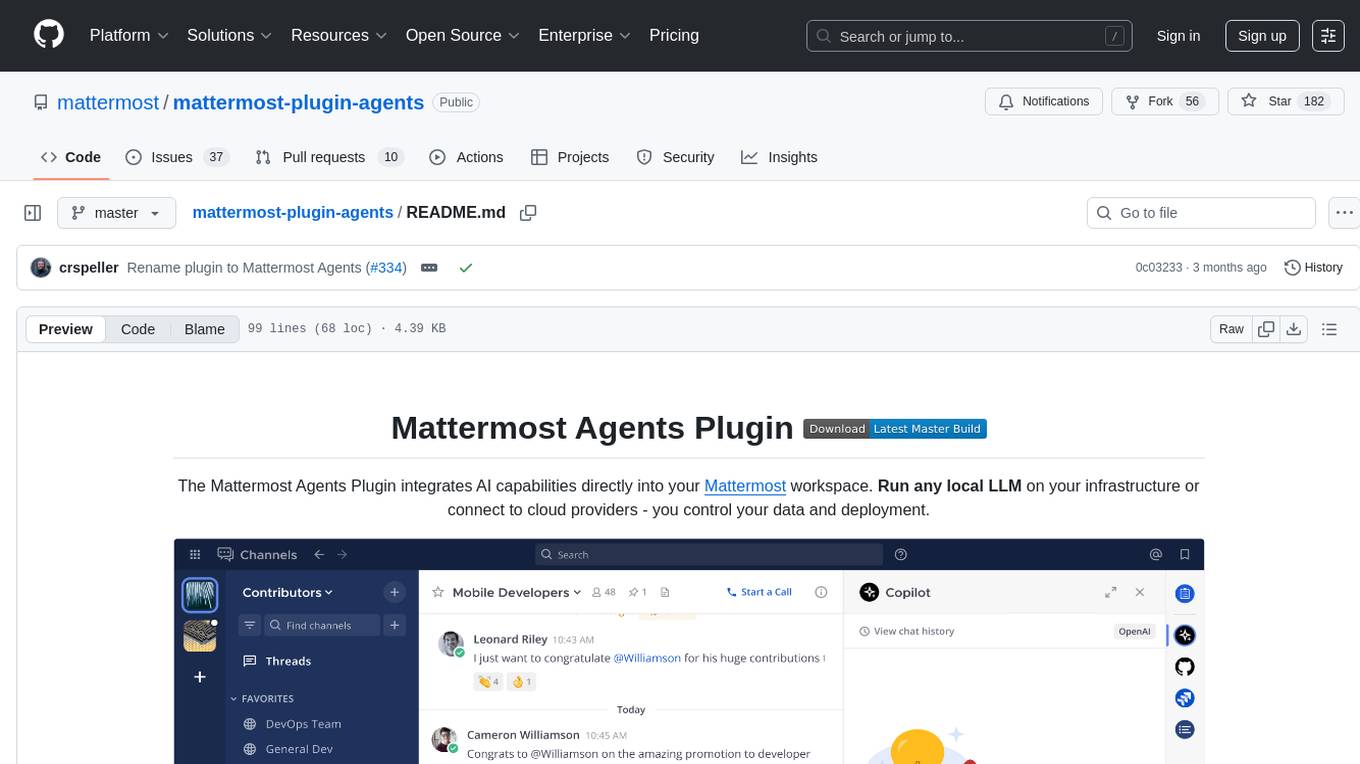
mattermost-plugin-agents
The Mattermost Agents Plugin integrates AI capabilities directly into your Mattermost workspace, allowing users to run local LLMs on their infrastructure or connect to cloud providers. It offers multiple AI assistants with specialized personalities, thread and channel summarization, action item extraction, meeting transcription, semantic search, smart reactions, direct conversations with AI assistants, and flexible LLM support. The plugin comes with comprehensive documentation, installation instructions, system requirements, and development guidelines for users to interact with AI features and configure LLM providers.
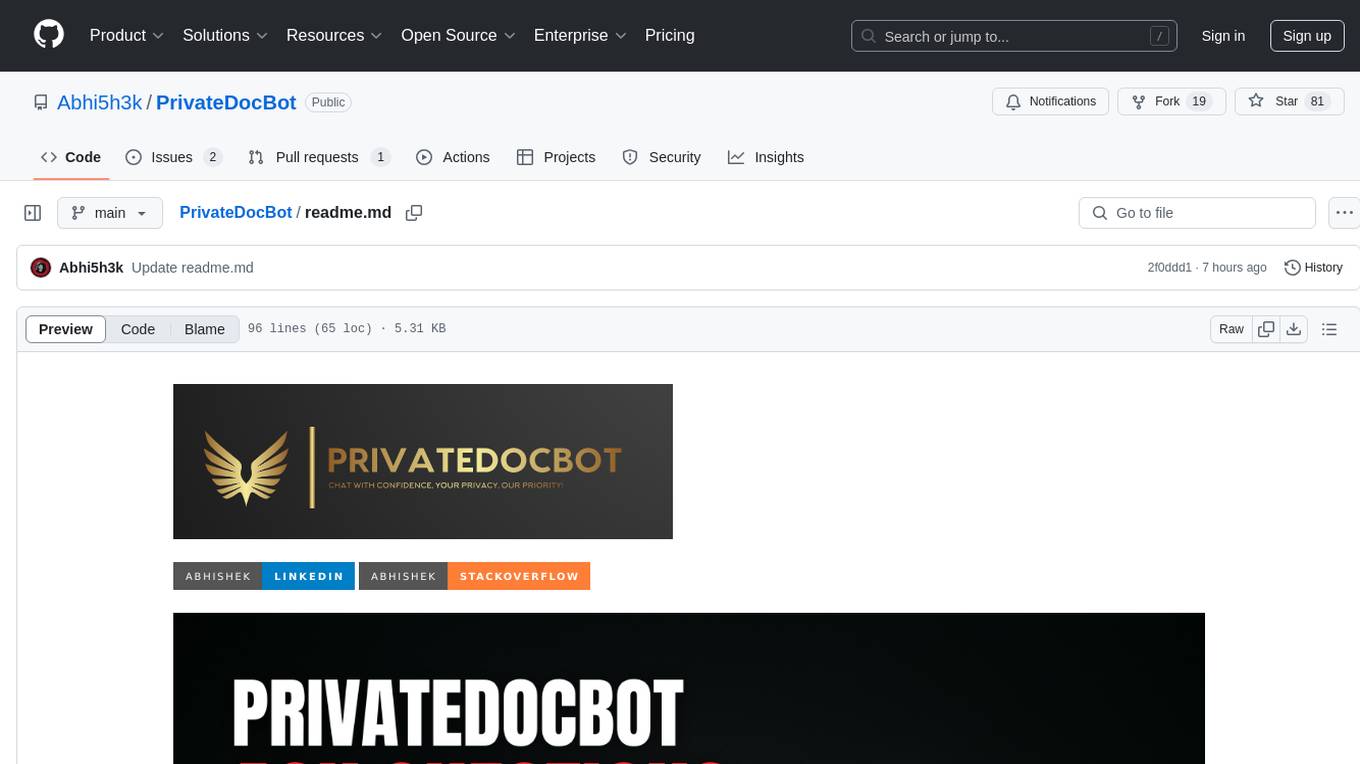
PrivateDocBot
PrivateDocBot is a local LLM-powered chatbot designed for secure document interactions. It seamlessly merges Chainlit user-friendly interface with localized language models, tailored for sensitive data. The project streamlines data access by deciphering intricate user guides and extracting vital insights from complex PDF reports. Equipped with advanced technology, it offers an engaging conversational experience, redefining data interaction and empowering users with control.
For similar tasks

cosdata
Cosdata is a cutting-edge AI data platform designed to power the next generation search pipelines. It features immutability, version control, and excels in semantic search, structured knowledge graphs, hybrid search capabilities, real-time search at scale, and ML pipeline integration. The platform is customizable, scalable, efficient, enterprise-grade, easy to use, and can manage multi-modal data. It offers high performance, indexing, low latency, and high requests per second. Cosdata is designed to meet the demands of modern search applications, empowering businesses to harness the full potential of their data.
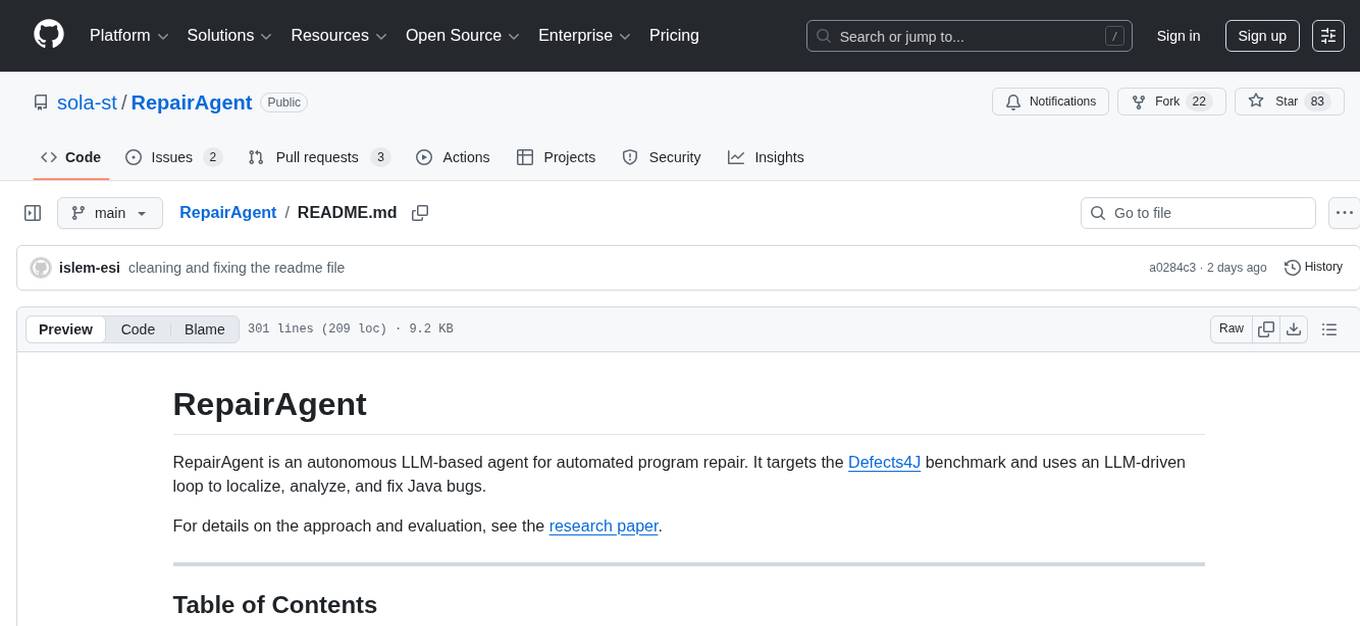
RepairAgent
RepairAgent is an autonomous LLM-based agent for automated program repair targeting the Defects4J benchmark. It uses an LLM-driven loop to localize, analyze, and fix Java bugs. The tool requires Docker, VS Code with Dev Containers extension, OpenAI API key, disk space of ~40 GB, and internet access. Users can get started with RepairAgent using either VS Code Dev Container or Docker Image. Running RepairAgent involves checking out the buggy project version, autonomous bug analysis, fix candidate generation, and testing against the project's test suite. Users can configure hyperparameters for budget control, repetition handling, commands limit, and external fix strategy. The tool provides output structure, experiment overview, individual analysis scripts, and data on fixed bugs from the Defects4J dataset.

tt-metal
TT-NN is a python & C++ Neural Network OP library. It provides a low-level programming model, TT-Metalium, enabling kernel development for Tenstorrent hardware.
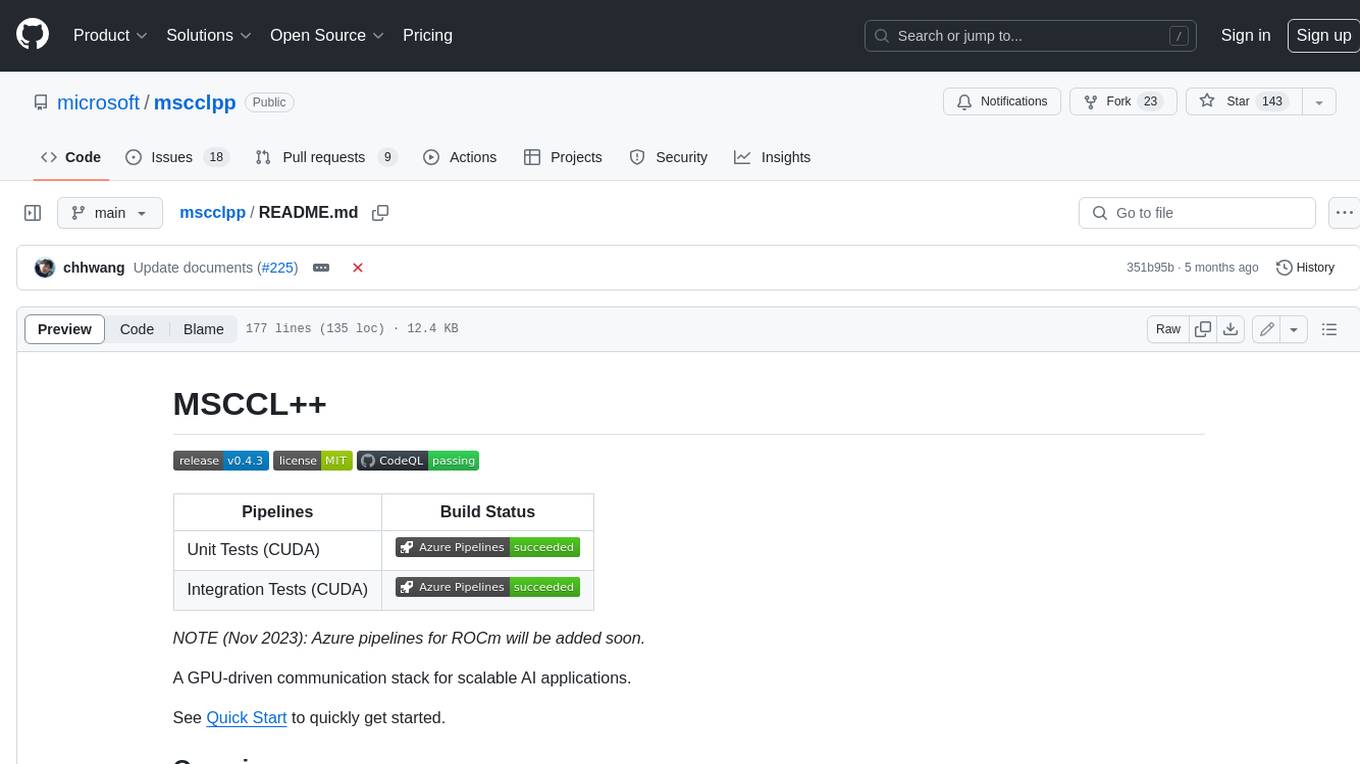
mscclpp
MSCCL++ is a GPU-driven communication stack for scalable AI applications. It provides a highly efficient and customizable communication stack for distributed GPU applications. MSCCL++ redefines inter-GPU communication interfaces, delivering a highly efficient and customizable communication stack for distributed GPU applications. Its design is specifically tailored to accommodate diverse performance optimization scenarios often encountered in state-of-the-art AI applications. MSCCL++ provides communication abstractions at the lowest level close to hardware and at the highest level close to application API. The lowest level of abstraction is ultra light weight which enables a user to implement logics of data movement for a collective operation such as AllReduce inside a GPU kernel extremely efficiently without worrying about memory ordering of different ops. The modularity of MSCCL++ enables a user to construct the building blocks of MSCCL++ in a high level abstraction in Python and feed them to a CUDA kernel in order to facilitate the user's productivity. MSCCL++ provides fine-grained synchronous and asynchronous 0-copy 1-sided abstracts for communication primitives such as `put()`, `get()`, `signal()`, `flush()`, and `wait()`. The 1-sided abstractions allows a user to asynchronously `put()` their data on the remote GPU as soon as it is ready without requiring the remote side to issue any receive instruction. This enables users to easily implement flexible communication logics, such as overlapping communication with computation, or implementing customized collective communication algorithms without worrying about potential deadlocks. Additionally, the 0-copy capability enables MSCCL++ to directly transfer data between user's buffers without using intermediate internal buffers which saves GPU bandwidth and memory capacity. MSCCL++ provides consistent abstractions regardless of the location of the remote GPU (either on the local node or on a remote node) or the underlying link (either NVLink/xGMI or InfiniBand). This simplifies the code for inter-GPU communication, which is often complex due to memory ordering of GPU/CPU read/writes and therefore, is error-prone.
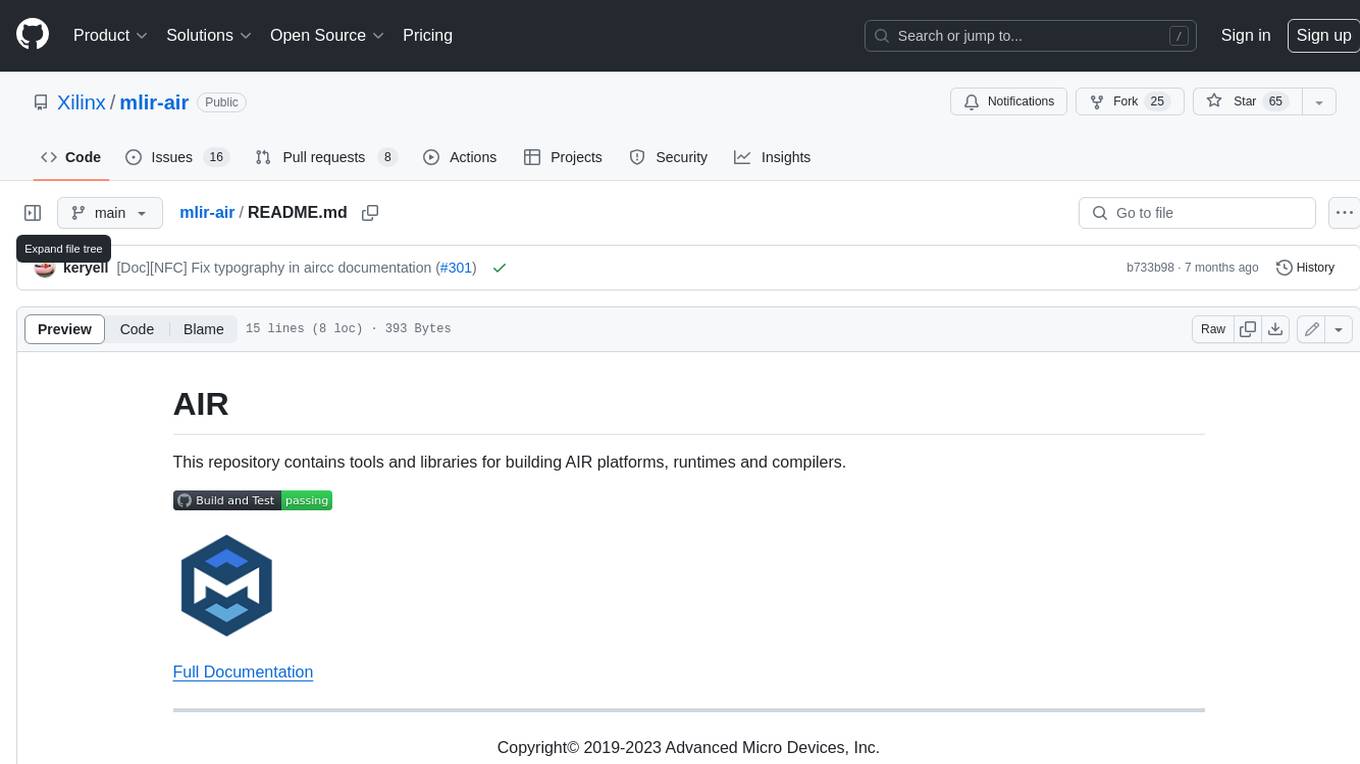
mlir-air
This repository contains tools and libraries for building AIR platforms, runtimes and compilers.

free-for-life
A massive list including a huge amount of products and services that are completely free! ⭐ Star on GitHub • 🤝 Contribute # Table of Contents * APIs, Data & ML * Artificial Intelligence * BaaS * Code Editors * Code Generation * DNS * Databases * Design & UI * Domains * Email * Font * For Students * Forms * Linux Distributions * Messaging & Streaming * PaaS * Payments & Billing * SSL
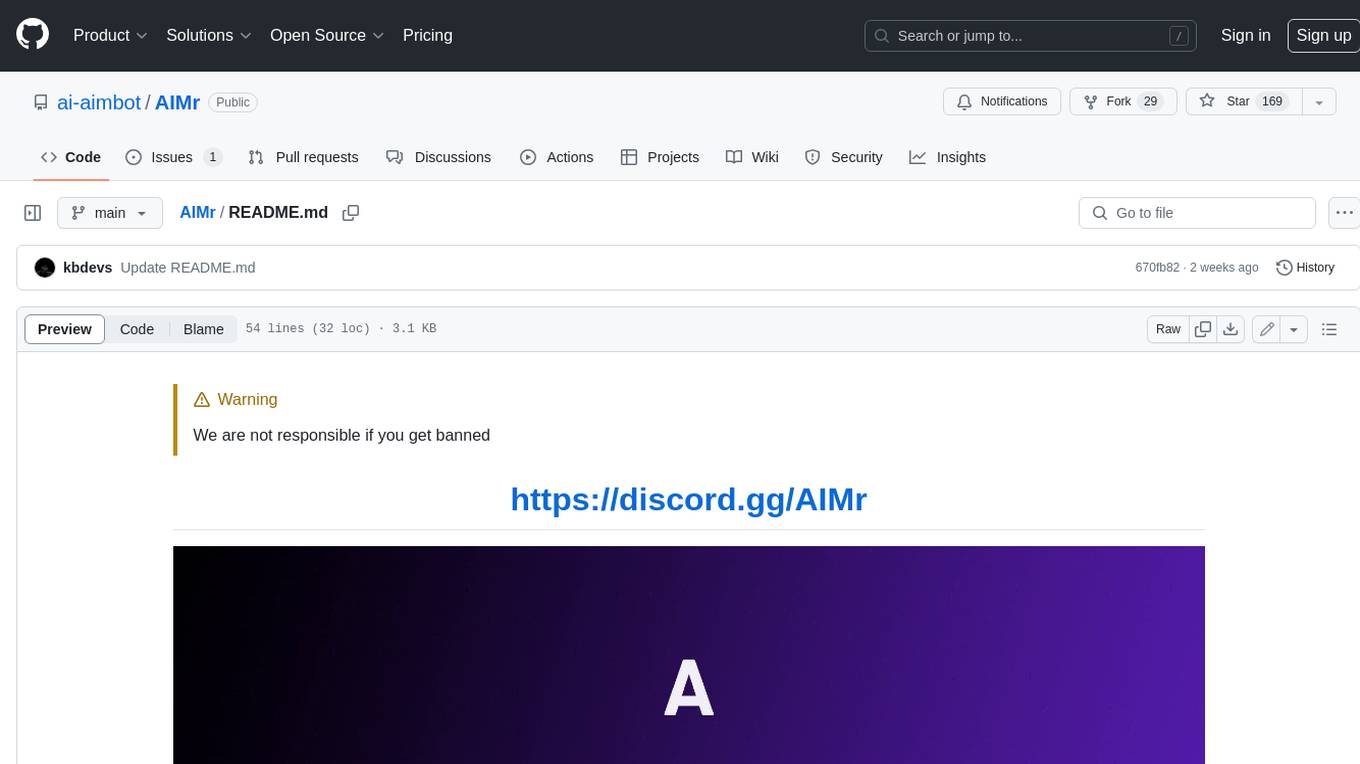
AIMr
AIMr is an AI aimbot tool written in Python that leverages modern technologies to achieve an undetected system with a pleasing appearance. It works on any game that uses human-shaped models. To optimize its performance, users should build OpenCV with CUDA. For Valorant, additional perks in the Discord and an Arduino Leonardo R3 are required.
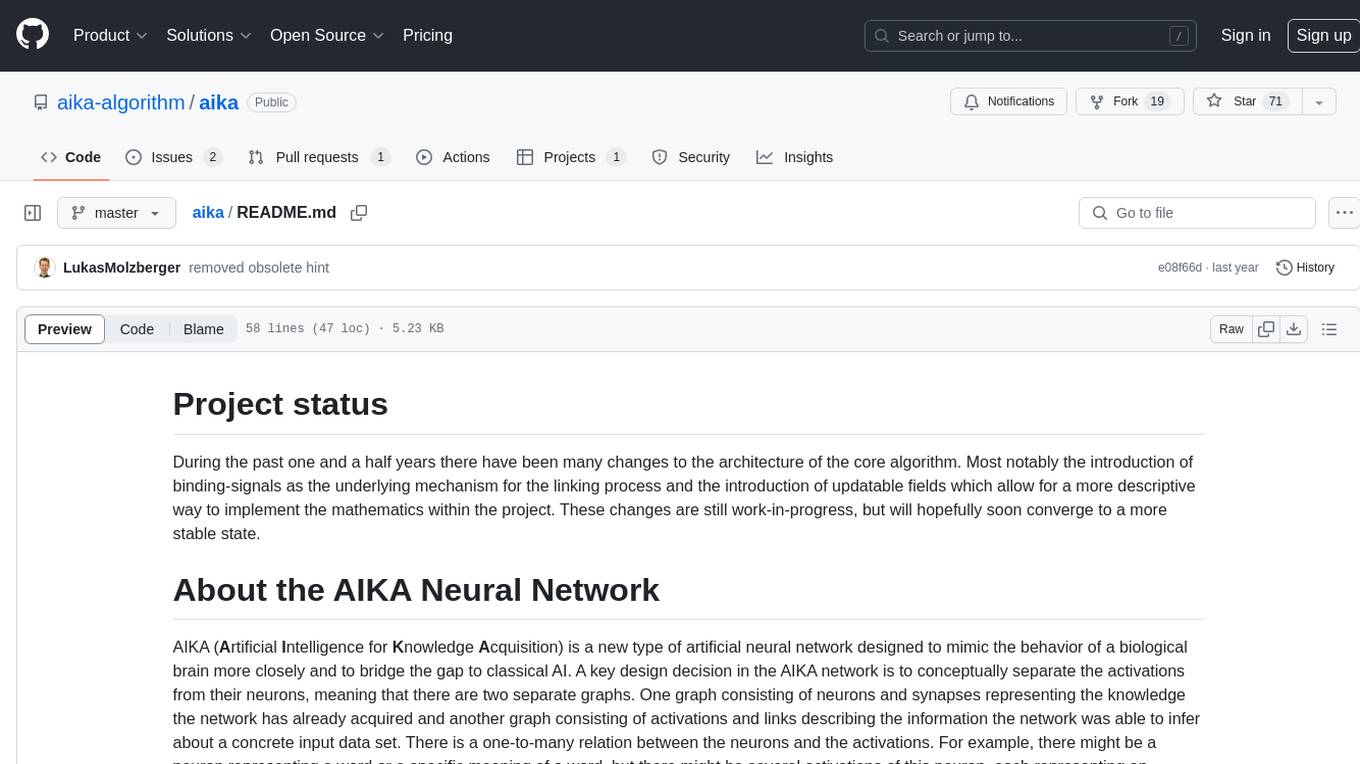
aika
AIKA (Artificial Intelligence for Knowledge Acquisition) is a new type of artificial neural network designed to mimic the behavior of a biological brain more closely and bridge the gap to classical AI. The network conceptually separates activations from neurons, creating two separate graphs to represent acquired knowledge and inferred information. It uses different types of neurons and synapses to propagate activation values, binding signals, causal relations, and training gradients. The network structure allows for flexible topology and supports the gradual population of neurons and synapses during training.
For similar jobs

weave
Weave is a toolkit for developing Generative AI applications, built by Weights & Biases. With Weave, you can log and debug language model inputs, outputs, and traces; build rigorous, apples-to-apples evaluations for language model use cases; and organize all the information generated across the LLM workflow, from experimentation to evaluations to production. Weave aims to bring rigor, best-practices, and composability to the inherently experimental process of developing Generative AI software, without introducing cognitive overhead.

LLMStack
LLMStack is a no-code platform for building generative AI agents, workflows, and chatbots. It allows users to connect their own data, internal tools, and GPT-powered models without any coding experience. LLMStack can be deployed to the cloud or on-premise and can be accessed via HTTP API or triggered from Slack or Discord.

VisionCraft
The VisionCraft API is a free API for using over 100 different AI models. From images to sound.

kaito
Kaito is an operator that automates the AI/ML inference model deployment in a Kubernetes cluster. It manages large model files using container images, avoids tuning deployment parameters to fit GPU hardware by providing preset configurations, auto-provisions GPU nodes based on model requirements, and hosts large model images in the public Microsoft Container Registry (MCR) if the license allows. Using Kaito, the workflow of onboarding large AI inference models in Kubernetes is largely simplified.

PyRIT
PyRIT is an open access automation framework designed to empower security professionals and ML engineers to red team foundation models and their applications. It automates AI Red Teaming tasks to allow operators to focus on more complicated and time-consuming tasks and can also identify security harms such as misuse (e.g., malware generation, jailbreaking), and privacy harms (e.g., identity theft). The goal is to allow researchers to have a baseline of how well their model and entire inference pipeline is doing against different harm categories and to be able to compare that baseline to future iterations of their model. This allows them to have empirical data on how well their model is doing today, and detect any degradation of performance based on future improvements.

tabby
Tabby is a self-hosted AI coding assistant, offering an open-source and on-premises alternative to GitHub Copilot. It boasts several key features: * Self-contained, with no need for a DBMS or cloud service. * OpenAPI interface, easy to integrate with existing infrastructure (e.g Cloud IDE). * Supports consumer-grade GPUs.

spear
SPEAR (Simulator for Photorealistic Embodied AI Research) is a powerful tool for training embodied agents. It features 300 unique virtual indoor environments with 2,566 unique rooms and 17,234 unique objects that can be manipulated individually. Each environment is designed by a professional artist and features detailed geometry, photorealistic materials, and a unique floor plan and object layout. SPEAR is implemented as Unreal Engine assets and provides an OpenAI Gym interface for interacting with the environments via Python.

Magick
Magick is a groundbreaking visual AIDE (Artificial Intelligence Development Environment) for no-code data pipelines and multimodal agents. Magick can connect to other services and comes with nodes and templates well-suited for intelligent agents, chatbots, complex reasoning systems and realistic characters.